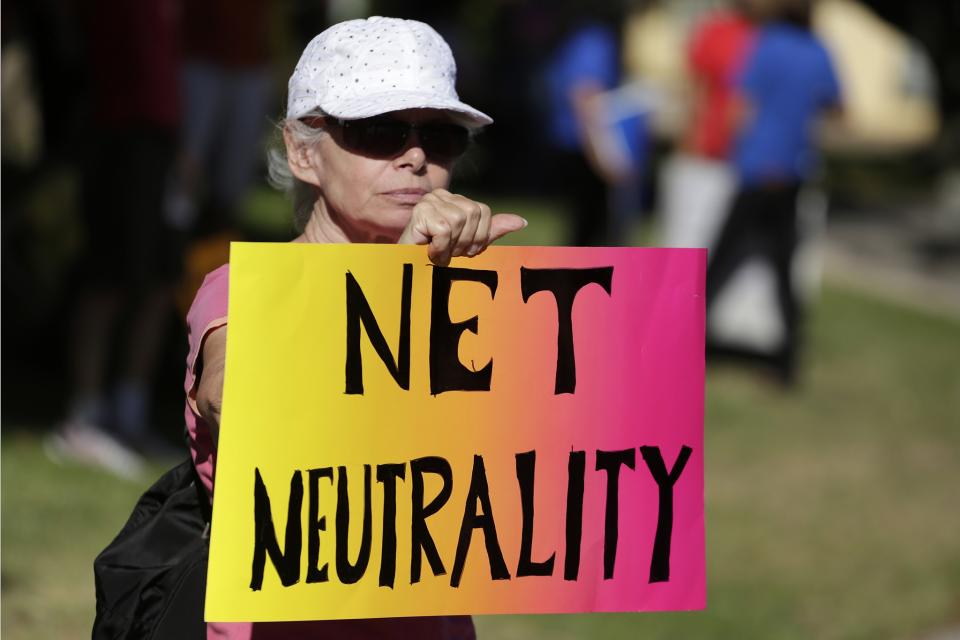Outgoing FCC chair: Don't go backward on net neutrality

Federal Communications Commission chairman Tom Wheeler is in line to have his signature accomplishments demolished by the Trump administration, so he understandably sounded a little irked in his final speech as FCC chair.
At an appearance at the Aspen Institute Friday morning in Washington, Wheeler made a case for preserving net-neutrality regulations that was rooted both in American history and in the economics of today and tomorrow.
“It now falls to the new FCC—and to those who advocate before it and the Congress—to determine the road they want to take from here,” Wheeler said. “One path leads forward, and the other leads back to re-litigating solutions that are demonstrably working.”
Neutering net neutrality
Wheeler spent most of his talk defending the net-neutrality rules that ban internet providers from blocking or slowing legal internet applications and sites, charging them for priority delivery of their bits, or otherwise using their control of connectivity to help some sites or hinder others.
The FCC’s adoption of these rules in early 2015 represented a stunning reversal of years of steadily weakening open-internet protections. Ever since, Big Telecom has been battling to undo those rules. An appeals court ruling last year upholding them seemed to end that argument—but then the election happened.
January 20 will bring Wheeler’s resignation as FCC chair and Donald J. Trump’s inauguration as president, leaving the commission with a Republican majority—and a GOP majority in the House and Senate—free to start clicking the “undo” button on the net-neutrality rules.
In Friday’s speech, Wheeler implored them not to do that.
“Where’s the fire?” he asked. “What happened since the Open Internet rules were adopted to justify uprooting the policy?”
Historical and business cases for an open internet
Net neutrality as a political argument is fairly novel—the term only entered wide circulation after a 2003 paper by Columbia University law professor Tim Wu—but Wheeler argued that net neutrality is not a new concept.
“The idea of an open network goes back as far as the ‘first-come-first-served’ traffic management of the telegraph,” said Wheeler, who years before leading the FCC wrote “Mr. Lincoln’s T-Mails,” a 2009 history of President Abraham Lincoln’s use of that communications technology.
“Telephone networks’ common carrier status was an extension of this concept that was warranted by a behavioral legacy and a demonstrated exercise of monopoly power,” he said, adding that an open phone network “allowed America to go online.”
Critics of net-neutrality rules have argued that they cramp investment in broadband by phone and cable companies.
Wheeler said US broadband investment rose over his term to hit $76 billion in 2015, but the December estimate by U.S. Telecom that he leaned on makes a weak case either way. That trade group’s numbers showed broadband spending fairly flat during his term: $75 billion in 2013, $77 billion in 2014, then 2015’s $76 billion.
Wheeler added that more efficient network construction meant 2015 dollars went further than 2013 upgrades.
As evidence, he cited AT&T (T) network-operations president Bill Smith bragging at a conference last summer that over 2015 and 2016 that firm would add “about 250%” of the capacity it had rolled out in 2013 and 2014—at 75% of those years’ costs.
What comes next?
Wheeler suggested that the next generation of smart devices, from virtual and augmented reality to Internet of Things gadgets to self-driving cars, needed an open internet: “They all have developed on the assumption that connectivity will be fast, fair and open.”
“IoT” devices like connected light bulbs and washers don’t need much bandwidth, but more data-intensive uses like VR and cloud-hosted apps will.
“If ISPs get to choose which applications and clouds work better than others in terms of access speed and latency, they will control the cloud future,” Wheeler said.
He warned against softening net-neutrality rules to cover only blocking, throttling or paid prioritization, saying the FCC must retain “general conduct” oversight authority that lets it flag other kinds of abuse of power by network gatekeepers.
“We must be alert to name-only, so-called net-neutrality policies that actually retreat from the protections that exist today,” he said.
As evidence, Wheeler pointed to recent moves by AT&T and Verizon (VZ) to exempt their DirecTV Now and go90 video services from data caps. An FCC staff report just criticized that behavior—a rare instance of the commission calling out any ISP for violating net-neutrality principles.
Wheeler correctly noted that a future FCC won’t be able to reverse course quickly, thanks to laws requiring administrative agencies such as the commission to justify their decisions by proving that circumstances have changed. But that will soon be out of his hands, along with the fate of such other recent FCC projects as limiting what ISPs can do with their customers’ data.
Looking past January 20, he could only offer one word, drawn from a line in Lincoln’s first inaugural address about the people’s ability to limit any one administration’s reach: vigilance.
Email Rob at rob@robpegoraro.com; follow him on Twitter at @robpegoraro.

 Yahoo Finance
Yahoo Finance 

